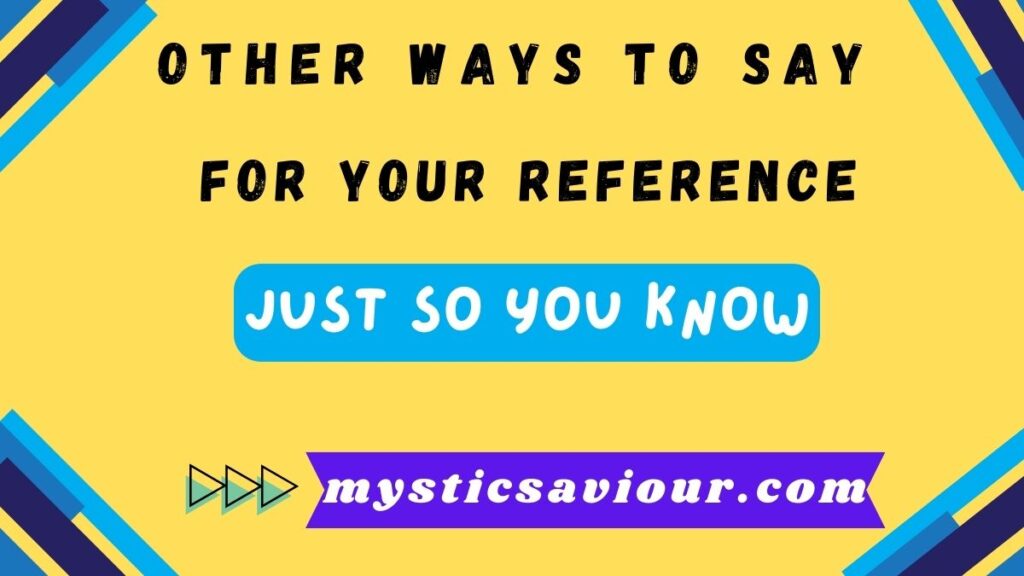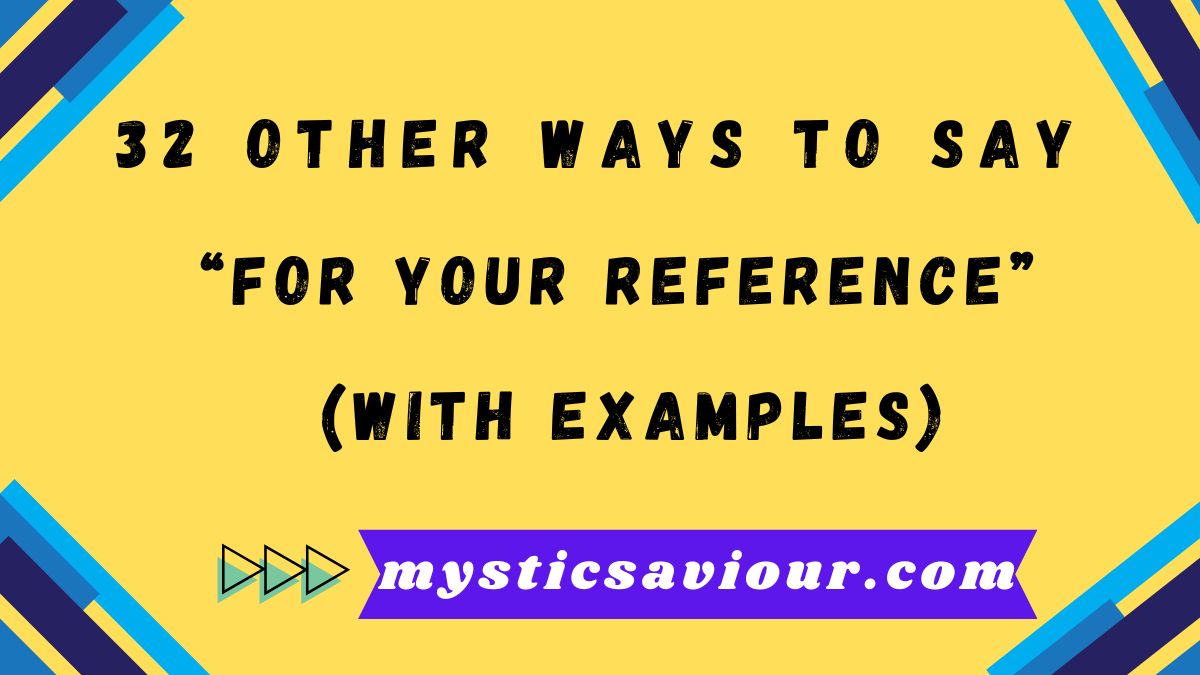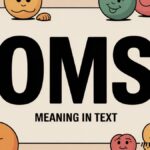In professional and casual communication, it’s common to use the phrase “For your reference” when providing someone with important information or documents. However, repetition of the same phrase can sound dull or overly formal. “32 Other Ways to Say ‘For Your Reference’ (With Examples)” explores alternative phrases that can enhance clarity, tone, and engagement in your messages, whether you’re crafting a business email or a friendly message. These variations can help you adjust your writing to fit different contexts and audiences, making your communication sound fresh and impactful.
Imagine being able to convey the same important details, but with more variety and personality in your words. The right phrase can turn a standard message into something memorable, showing your ability to tailor your communication to the situation. By knowing alternative expressions for “For your reference,” you’ll have an impressive toolkit for professional writing and email etiquette.
This guide presents a collection of 32 alternatives, each designed to meet different needs—whether you’re aiming for a polite tone, a friendly approach, or a clear, concise message. With these alternative phrases, you can transform your communication style, making it not only more versatile but also more effective.
Why Use Alternative Phrases?
Before we dive into the phrases, it’s important to understand why switching up your word choice matters.
Using alternative expressions not only makes your writing more engaging but also helps you:
- Adjust your tone: Some phrases are more casual, while others are formal, so you can pick the right one based on the context (e.g., business emails vs. casual writing).
- Convey meaning more clearly: Certain synonyms might be more precise or clearer depending on the situation, making sure the recipient understands exactly what you’re trying to say.
- Enhance email professionalism: In business correspondence, the right phrase can boost your credibility and demonstrate your communication skills.
Let’s explore the different ways you can convey similar meanings with a variety of phrases, and how these alternatives can help shape your message in a more effective way.
Common Alternatives for Informal Communication
In casual writing or more conversational contexts, alternative phrases can make your emails or messages feel more friendly and approachable. Here are some great alternatives that keep your communication warm and friendly.
“Just So You Know”

This phrase is useful when you’re giving someone information they might not need right away but should be aware of. It’s casual and friendly, yet still conveys the point clearly.
- Example: “Just so you know, the meeting has been moved to 3 PM today.”
This phrase is widely used in emails and even in personal messages, as it communicates important details without sounding too formal.
“Just a Heads Up”
A casual alternative phrase often used when giving someone a friendly warning or early notice about something. It’s a great choice when you’re trying to give someone a heads-up about an event or deadline.
- Example: “Just a heads up, the deadline for submission has been pushed back to next week.”
The phrase works well for email notices when you want to keep the message light and not overly serious.
“In Case You Need It”
This expression is helpful when you’re providing information that may not be immediately needed but might come in handy later. It keeps things relaxed and non-urgent.
- Example: “I’ve attached the document in case you need it for the project later.”
It’s a friendly tone that emphasizes helping out without making the recipient feel pressured.
“To Help You Out”
This phrase is often used to provide someone with extra information or resources, showing that you’re offering help in a relaxed and informal manner.
- Example: “Here’s the file to help you out with your upcoming report.”
It’s especially helpful when you want to show politeness in writing without being too stiff or formal.
“For Your Convenience”
When you’re providing something for easy access, this phrase lets the recipient know that you’ve made an effort to make their task easier.
- Example: “For your convenience, I’ve consolidated all the necessary files into one folder.”
This phrase is perfect for making your communication sound polite but still approachable, especially in business emails.
“As a Quick Reference”
This phrase indicates that the information you’re providing can be quickly accessed for a future need. It’s commonly used when sharing documents or instructions that may come in handy later.
- Example: “I’ve attached the guide as a quick reference for when you start the project.”
It’s a great way to stay informative while keeping your tone casual and concise.
More Formal Alternatives for Professional Communication
In formal communication—especially in professional settings or business emails—it’s often necessary to use alternative phrases that are slightly more formal but still polite and respectful. The following phrases are perfect for these situations:
“For Your Information”

This phrase is one of the most widely used alternatives to “For your reference” and is common in business communication. It’s a straightforward, neutral expression that fits well in professional emails.
- Example: “For your information, the meeting has been rescheduled to tomorrow at noon.”
It’s polite and to the point, which makes it a great option for a neutral tone in emails.
“For Your Awareness”
This variation is more formal and works well when you need to notify someone of important information without requiring immediate action.
- Example: “For your awareness, the company has implemented new guidelines regarding remote work.”
This phrase conveys professionalism while keeping the communication informative.
“For Your Consideration”
This is an excellent phrase when you want to present something for someone to think about or evaluate. It’s formal and often used in business emails and professional letters.
- Example: “For your consideration, here is the proposal for the new project budget.”
It’s respectful and signals that you value the recipient’s judgment or opinion.
“For Your Knowledge”
This phrase is used when sharing important information that the recipient might not be aware of. It’s clear, professional, and useful in corporate communication.
- Example: “For your knowledge, the report has been approved and is available for download.”
It’s direct and respectful, which makes it ideal for polite communication in business.
“For Your Records”
This phrase is commonly used when sharing documents or official information that should be kept for future reference. It’s typical in workplace emails and business letters.
- Example: “Please find attached the signed agreement for your records.”
It emphasizes that the information is meant to be kept and used later, making it ideal for formal business correspondence.
“For Your Verification”
When you need someone to check or confirm something, this phrase can be used to politely ask for validation.
- Example: “Attached are the figures for your verification before we proceed with the final report.”
This helps to ensure that your recipient knows their input is required.
“To Keep You Informed”
This is a formal way of making sure someone stays up-to-date. It’s often used in corporate settings to provide status updates.
- Example: “I’m sending this email to keep you informed of the latest developments in the project.”
It conveys professionalism and helps maintain transparency in business emails.
Phrases for Offering Updates or Changes
Sometimes, your communication needs to reflect changes or updates. These alternatives allow you to notify someone of an important shift in plans or deadlines.
“As an Update”

This phrase is commonly used when you’re providing a change or new information about an ongoing process or situation.
- Example: “As an update, we’ve secured approval for the new budget, and we can now move forward.”
It works well for email phrasing when you need to inform someone of progress or developments.
“Please Be Advised”
A more formal way to give someone important information or instructions, especially in business contexts.
- Example: “Please be advised that the office will be closed for the holiday weekend.”
This phrase is ideal when you need to communicate a neutral tone while still being polite.
“For Clarity”
This phrase is useful when you want to ensure that your message is understood without confusion.
- Example: “For clarity, let me explain the next steps in the process.”
It helps to break down complex messages in professional communication.
Other Versatile Alternatives
These alternatives are adaptable and can be used across different contexts, from casual to formal communication.
“For Your Guidance”

Use this phrase when offering information or advice that will help the recipient make informed decisions.
- Example: “Here are the guidelines for your guidance in completing the project successfully.”
“In Your Interest”
This phrase shows that the information being shared benefits the recipient’s goals or needs.
- Example: “I’m sending this over in your interest to ensure smooth communication for the upcoming conference.”
“For Your Benefit”
This phrase emphasizes the advantage the recipient will gain from the information being provided.
- Example: “For your benefit, we’ve compiled a list of resources that will help you in the application process.”
Conclusion
In conclusion, the 32 Other Ways to Say “For Your Reference” (With Examples) provide a range of options for improving your communication. Whether you’re writing a formal email or a casual message, these alternatives help make your writing more engaging and suited to the context. By using different phrases, you can better connect with your audience and keep your messages fresh.
Having these 32 alternatives at your disposal means you can always choose the right tone and phrasing for any situation. No more repetitive phrases—just clear, professional communication that resonates with your reader. The right words can make all the difference in how your message is received, so next time, try one of these alternatives to keep your communication smooth and effective.
FAQd
1. What does “For Your Reference” mean?
“For your reference” is a phrase used to provide someone with information or documents they may need for future use or context.
2. Why should I use alternatives to “For Your Reference”?
Using alternatives helps vary your writing, making it more engaging and suitable for different tones, whether casual or professional.
3. Are these alternatives suitable for business emails?
Yes, many of the alternatives, like “For your consideration” or “For your awareness,” are perfect for formal business emails.
4. Can I use these phrases in casual messages?
Absolutely! Phrases like “Just a heads up” or “In case you need it” are perfect for a more relaxed, friendly tone in casual communication.
5. How can changing my phrasing improve communication?
Switching up your phrasing ensures your message fits the tone and context, improving clarity and making your communication feel more thoughtful and engaging.

Sophie Bell is a creative writer at Mystic Saviour, specializing in Word Mechanics, Name Narratives, and Linguistic Twists. She brings a passion for language and storytelling, helping readers explore unique and engaging ways to enhance their writing.










